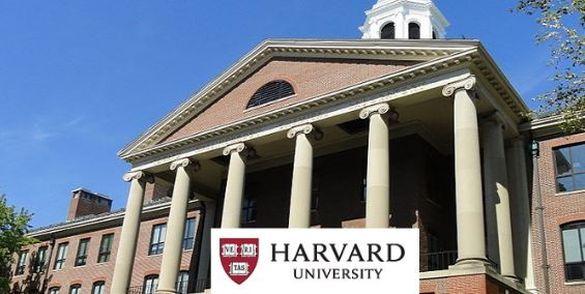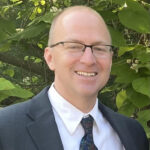
Harvard University gives you a chance to apply free online course named as Science and Cooking: From Haute Cuisine to Soft Matter Science. Top chefs and Harvard researchers explore how everyday cooking and haute cuisine techniques illuminate scientific principles in physics, chemistry, biology, and engineering.
This course focuses on the physical changes that occur during cooking. The free online course will cover these topics which are given below:
- How cooking changes food texture
- Making emulsions and foams
- Phase changes in cooking
Course At A Glance
- Length: 6 week
- Effort: 5 – 7 hours per week
- Subject: Science
- Institution: Harvard University
- Languages: English
- Price: Yes
- Certificate Available: Yes
- Session: The course will start on May 17, 2017
Providers Details
- About University: Established in 1636, Harvard is the oldest institution of higher education in the United States. The University, which is based in Cambridge and Boston, Massachusetts, has an enrollment of over 20,000-degree candidates, including undergraduate, graduate, and professional students.
- Aim of University: They are committed to creating and sustaining the conditions that enable all Harvard College students to experience an unparalleled educational journey that is intellectual, socially, and personally transformative.
Requirements
Secondary school (high school) algebra, basic mathematics concepts.
About This Course
- Benefits: Through this course, you will be visited by more world-famous chefs who use a number of different styles and techniques in their cooking. Each chef will demonstrate how he or she prepares delicious and interesting creations, and we will explore how fundamental scientific principles make them possible. The language of the scholarship is English.
- Importance of the Subject in Today’s Scenario: Cooking also obeys the laws of physics, in particular, chemistry. Yet it is quite possible to cook without understanding it. You can cook better if you do understand what is going on, particularly if you want to deviate from the ways that people have cooked before.
How to Join This Course
You should register yourself through the given link to join this free on-line course: https://courses.edx.org/register
Course Format
- Week 1: Elasticity
How do we describe food texture? In the first week of the course, we will explore the scientific concept of elasticity, which influences the texture of food, and how it changes during cooking. Discussions with Bill Yosses and Mark Ladner will address the role of gluten in the dough and the challenges of working with gluten-free varieties. - Week 2: Viscosity
How can we make liquid foods more appealing? Just as solid foods can have different textures, so can liquids, largely determined by their viscosity, or thickness. Scientific discussions about what determines viscosity and demonstrations of different ways to change the viscosities of foods will allow us to explore this topic from different perspectives. We will hear from Harvard’s own Martin Breslin, Director of Culinary Operations, and Carles Tejedor, from Oillab and By restaurant in Barcelona. - Week 3: Emulsions and Foams
Emulsions and foams are some of the most interesting foods to think about from a scientific perspective, and we will investigate the physical principles that control their formation. Nandu Jubany will demonstrate how he uses emulsions and foams for a twist on traditional Catalan cuisine at his restaurant, Can Jubany. In the lab, you can compete with other learners to see whose emulsion and foam rises the highest! - Week 4: Advanced Phase Behavior
The preparation of chocolate and frozen desserts such as ice cream are great illustrations of how chefs manipulate phase changes such as crystallization (freezing). This week we will discuss such concepts as nucleation of crystals and freezing point depression, and see how they can be used for chocolate tempering and making ice cream, which you will make yourself in the lab! - Week 5: Enzymes
The activity of enzymes can provide both benefits and challenges in the kitchen. After discussing the diverse roles that enzymes can play, we will investigate strategies to both restrict and exploit enzyme activity in cooking. Ted Russin and Wylie Dufresne will showcase some of their creative dishes that are only possible because of enzymes. - Week 6: Baking
To conclude the course, we will see how many of the topics that we have discussed come together in a popular cooking technique – baking! Joanne Chang and Christina Tosi will show us how to make delicious cakes, cookies, pies, and bread, and we will see how science makes it possible!
Why Take This Course
- Advantage of Course: You will also have the opportunity to become an experimental scientist in your very own laboratory your kitchen! By following along with the recipes of the week, taking precise measurements, and making skillful observations, you will learn to think like both a chef and a scientist.
- Certificate: You can pursue a verified certificate to highlight the knowledge and skills you gain ($75) Add the certificate to your CV or resume, or post it directly on LinkedIn. Receive an instructor-signed certificate with the institution’s logo to verify your achievement and increase your job prospects.
Learning Outcomes
- The chemical and physical principles that underlie everyday cooking and haute cuisine techniques
- How chefs can use enzymes to make foods that would otherwise be impossible
- How to use the scientific method to learn how a recipe works, and find ways you could improve it
- How to think like a chef AND a scientist.
Instructors
- Michael Brenner: He is the Glover Professor of Applied Mathematics and Applied Physics, and Harvard College Professor at the Harvard School of Engineering and Applied Sciences.
- Pia Sörensen: She is Preceptor of Science and Cooking at the School of Engineering and Applied Sciences at Harvard University, and the HarvardX Fellow for Science & CookingX.
- David Weitz: He is a Professor of Physics and Applied Physics, at the Harvard School of Engineering and Applied Sciences and the Department of Physics.
Suggested Reading
Basic mathematics concepts might be useful during the course.
You Might Also Be Interested In
If you are interested you can also join “Nutrition and Health Part 1: Macronutrients and Overnutrition” free online course.
Conclusion
- After completing the course you will get different styles and techniques in their cooking. You will learn to think like both a chef and a scientist. You will learn such Viscosity, Emulsions, and Foams, Baking that will be useful to your daily life.
- Your Certificate provides a detailed transcript of what you’ve learned. This includes how long you spent studying the course and your average test score. The Certificate and transcript give you evidence to show during job or university applications, or appraisals.
Detailed Information
For more information about the course, you can check the given link:
https://www.edx.org/course/science-cooking-haute-cuisine-soft-harvardx-spu27-2x#!

